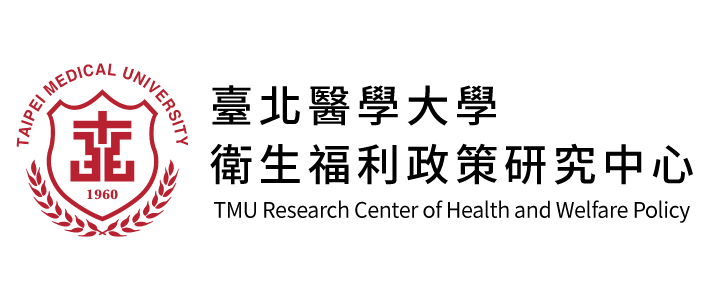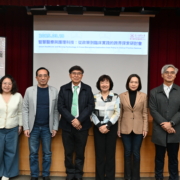【Event Report】The Taipei Medical University Health and Welfare Policy Research Center hosted the seminar “Smart Healthcare and Nursing Technology: A Cross-Disciplinary Exploration from Policy to Clinical Practice,” focusing on how smart healthcare technologies can alleviate the burden on frontline medical and nursing staff.
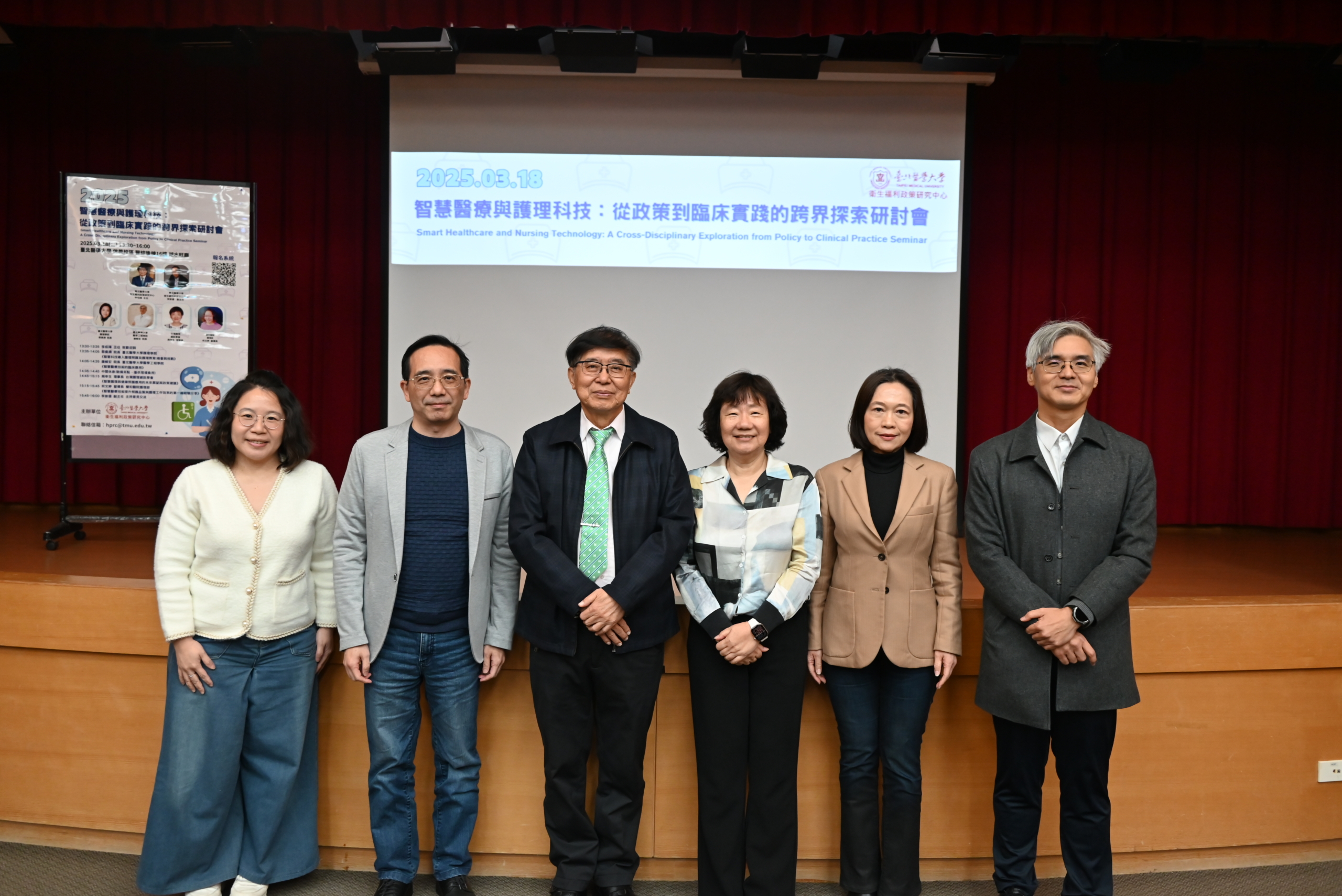
(From left to right: Ho Wen-Ting, Director of the Nursing Department at Shuang Ho Hospital; Li Chong-Xi, Deputy Director of the Taipei Medical University Health and Welfare Policy Research Center; Lee Po-Chang, Director of the Taipei Medical University Health and Welfare Policy Research Center; Chou Hsing-Sheng, President of the Taiwan Nursing Informatics Association; Tsai Pei-Shan, Dean of the College of Nursing at Taipei Medical University; and Kang Chun-Hung, Dean of the College of Biomedical Engineering at Taipei Medical University.)
As Taiwan approaches a super-aged society, the issue of nursing workforce shortages is becoming increasingly severe. In response, the Taipei Medical University Health and Welfare Policy Research Center is hosting the “Smart Healthcare and Nursing Technology:A Cross-Disciplinary Exploration from Policy to Clinical Practice Seminar“ on Tuesday, March 18, 2025. This academic symposium aims to explore how smart healthcare technologies can alleviate the burden on frontline medical staff, enhance healthcare service efficiency, and improve the quality of care.
Opening Remarks – Director Lee Po-Chang, Taipei Medical University Health and Welfare Policy Research Center
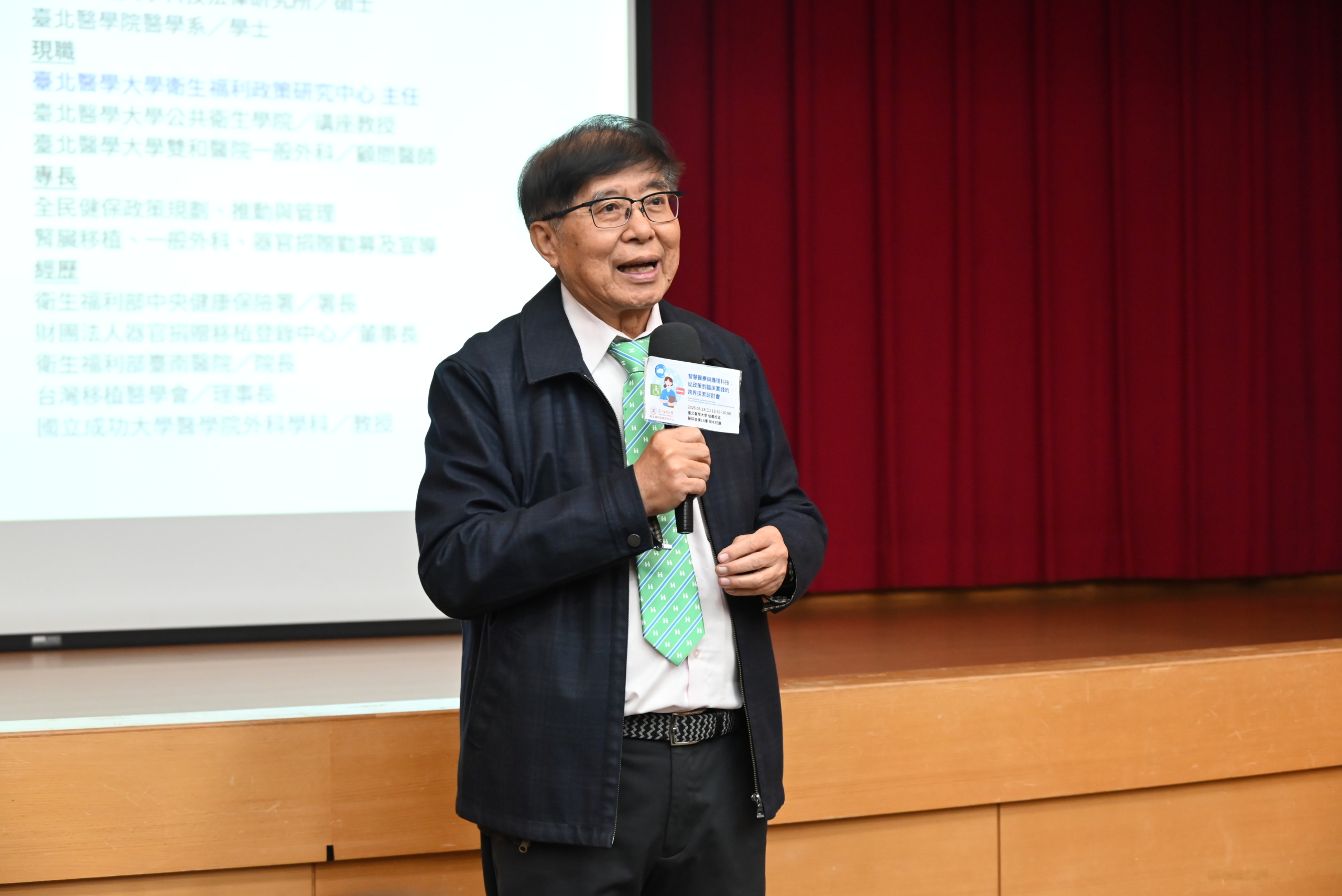
Director Lee Po-Chang emphasized in his opening speech that advancements in medical technology, particularly artificial intelligence (AI), have brought significant breakthroughs in the healthcare sector. While healthcare professionals remain irreplaceable at the core of medical practice, the importance of assistive tools and technologies has become increasingly evident. AI, in particular, provides crucial support, making it a key trend in Taiwan’s future medical development. He expressed his hope that this symposium would foster interdisciplinary discussions, allowing participants to gain insights into the latest medical knowledge and technological applications.
Dean Tsai Pei-Shan, College of Nursing, Taipei Medical University
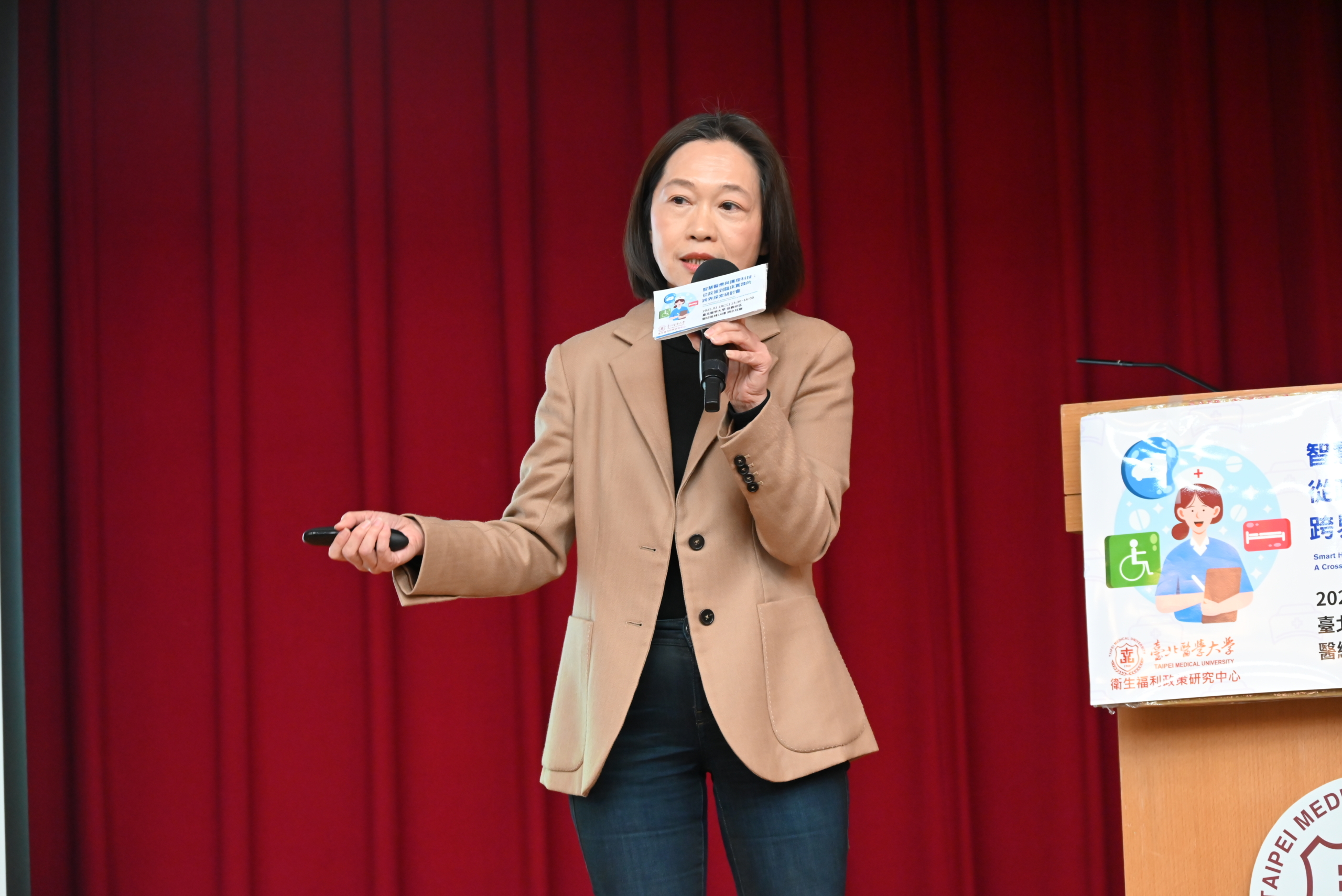
Dean Tsai Pei-Shan highlighted that by 2030, Taiwan is projected to face a shortage of approximately 55,000 nurses, making the integration of smart technologies into nursing care and education an urgent priority. She pointed out that AI, the Internet of Things (IoT), big data, and virtual reality are gradually transforming nursing practices, enhancing efficiency, reducing workforce burdens, and improving medical safety. Over the next five years, Taiwan’s nursing development will focus on five key areas: smart technology applications, health promotion, patient-centered care, interdisciplinary collaboration, and sustainable workforce development. Dean Tsai stressed that adopting smart healthcare technologies will improve workplace conditions, alleviate the burden on healthcare professionals, encourage workforce retention, and ensure the sustainability of Taiwan’s healthcare system while enhancing patient welfare.
Dean Kang Chun-Hung, College of Biomedical Engineering, Taipei Medical University
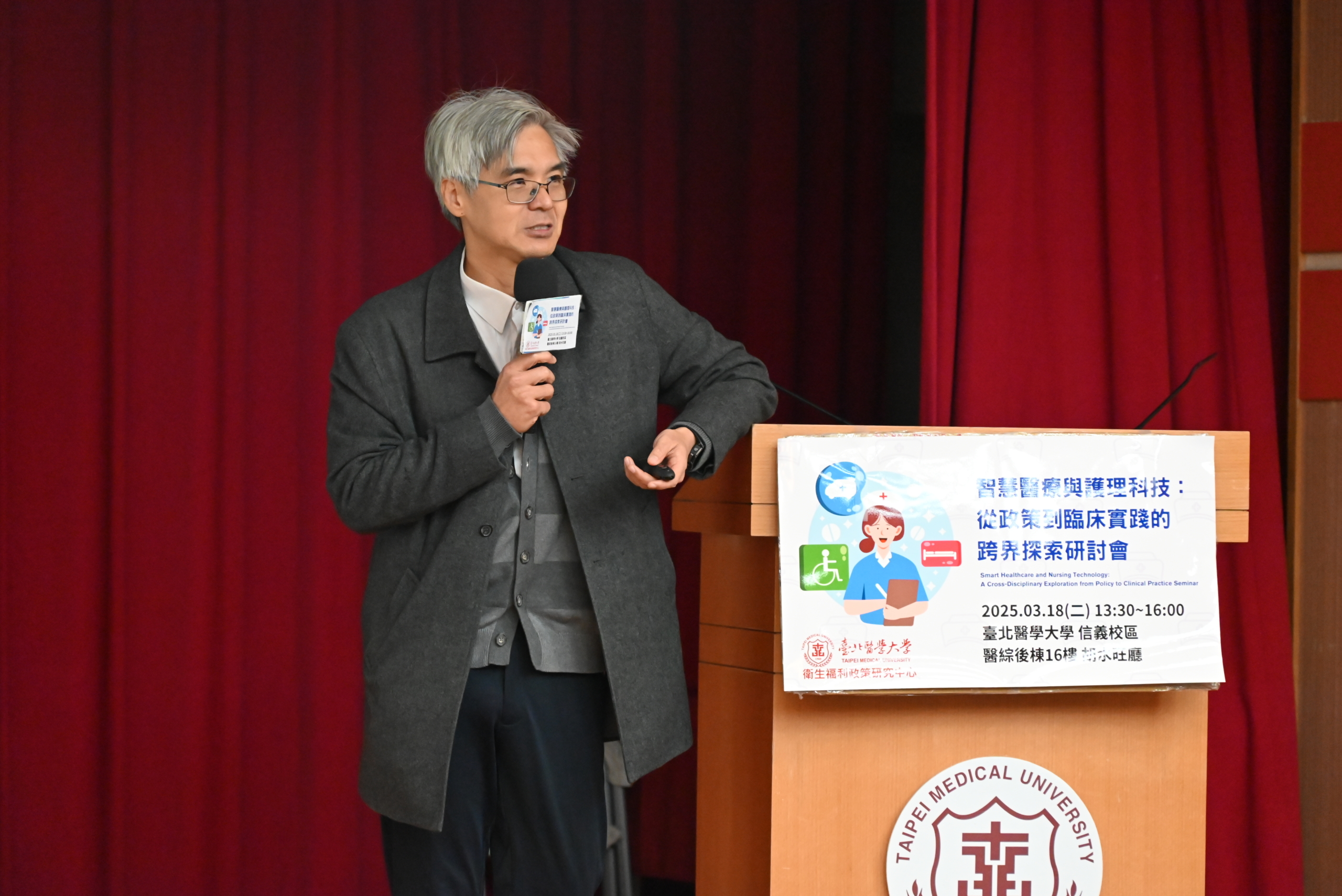
Dean Kang Chun-Hung discussed how AI integration is revolutionizing the healthcare industry by enhancing efficiency, reducing errors, optimizing resource utilization, and improving patient care quality. His presentation introduced various applications, including:
- Robotic technologies that assist in patient transfers, reducing workplace injuries and enhancing patient care efficiency.
- Wearable sensors that enable real-time health monitoring and remote patient management.
- AI-driven algorithms that personalize treatment plans based on individual patient data, optimizing clinical decision-making and improving treatment outcomes.
These innovations are reshaping medical models, leading to significant improvements in healthcare quality and efficiency. However, Dean Kang also highlighted several challenges, such as data privacy, algorithmic bias, explainability, accountability, and environmental impact. He emphasized that the future of smart healthcare requires multidisciplinary collaboration, continuous evaluation, and sustainable innovation to ensure ethical and responsible development.
President Chou Hsing-Sheng, Taiwan Nursing Informatics Association
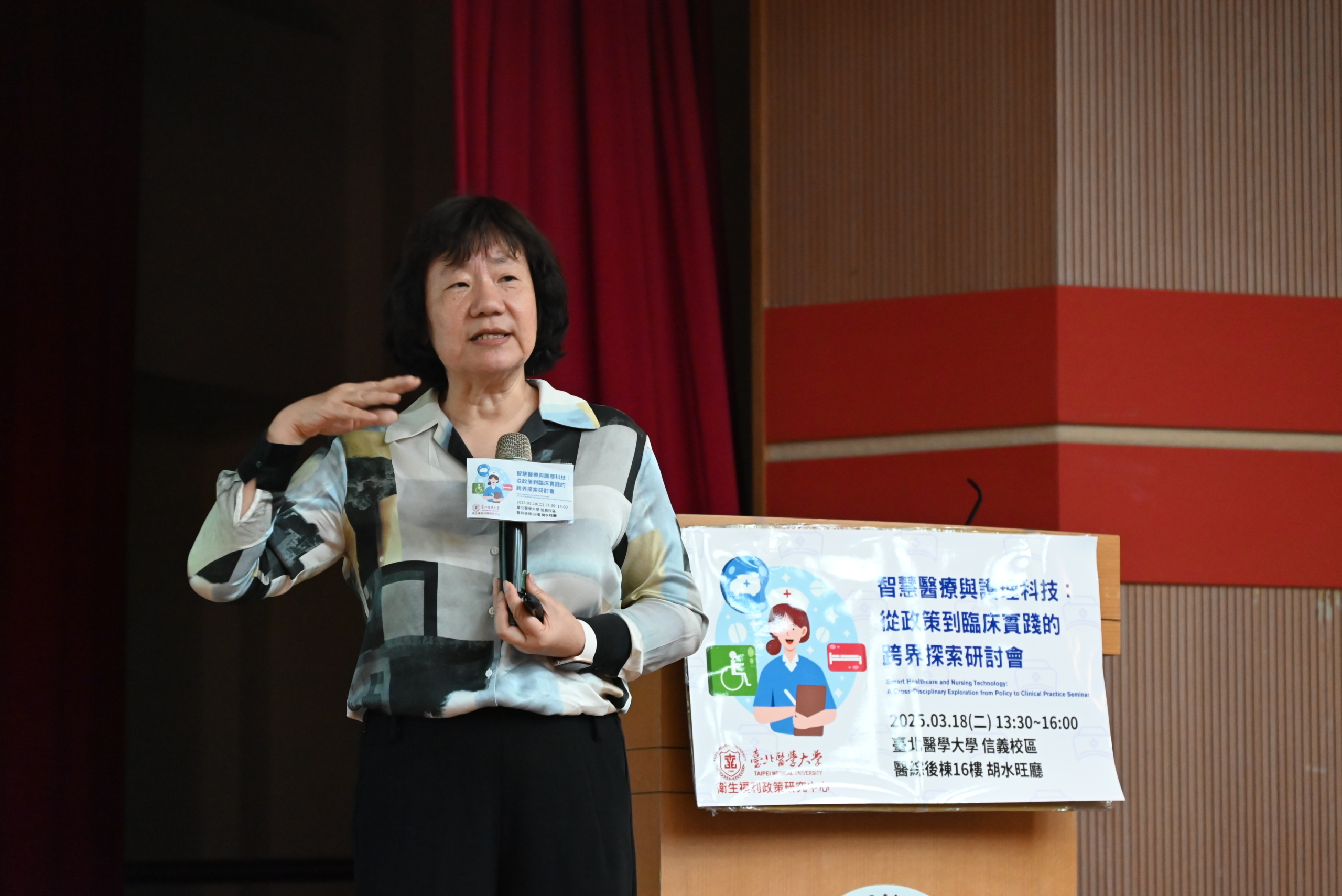
President Chou Hsing-Sheng stated that Taiwan’s nursing informatics sector is actively leveraging advanced technologies to improve patient care and healthcare efficiency. Many hospitals have already integrated smart nursing technologies, such as:
- Smart mattresses and automated medication dispensing systems, which enhance patient management and reduce human errors.
As these technologies become more widespread, Taiwan’s healthcare system is expected to see significant improvements in operational efficiency and patient care quality. President Chou proposed several policy recommendations, including:
- Standardizing nursing records and establishing unified care management systems across all healthcare institutions.
- Enhancing data-sharing mechanisms among hospitals to improve medical resource allocation.
- Government funding to support the standardization of smart medical devices.
- Developing a standardized data collection framework to accurately measure healthcare service effectiveness and inform future policies.
Finally, he stressed that smart healthcare must align with clinical needs to fully realize its potential in improving patient care.
Director Ho Wen-Ting, Nursing Department, Shuang Ho Hospital
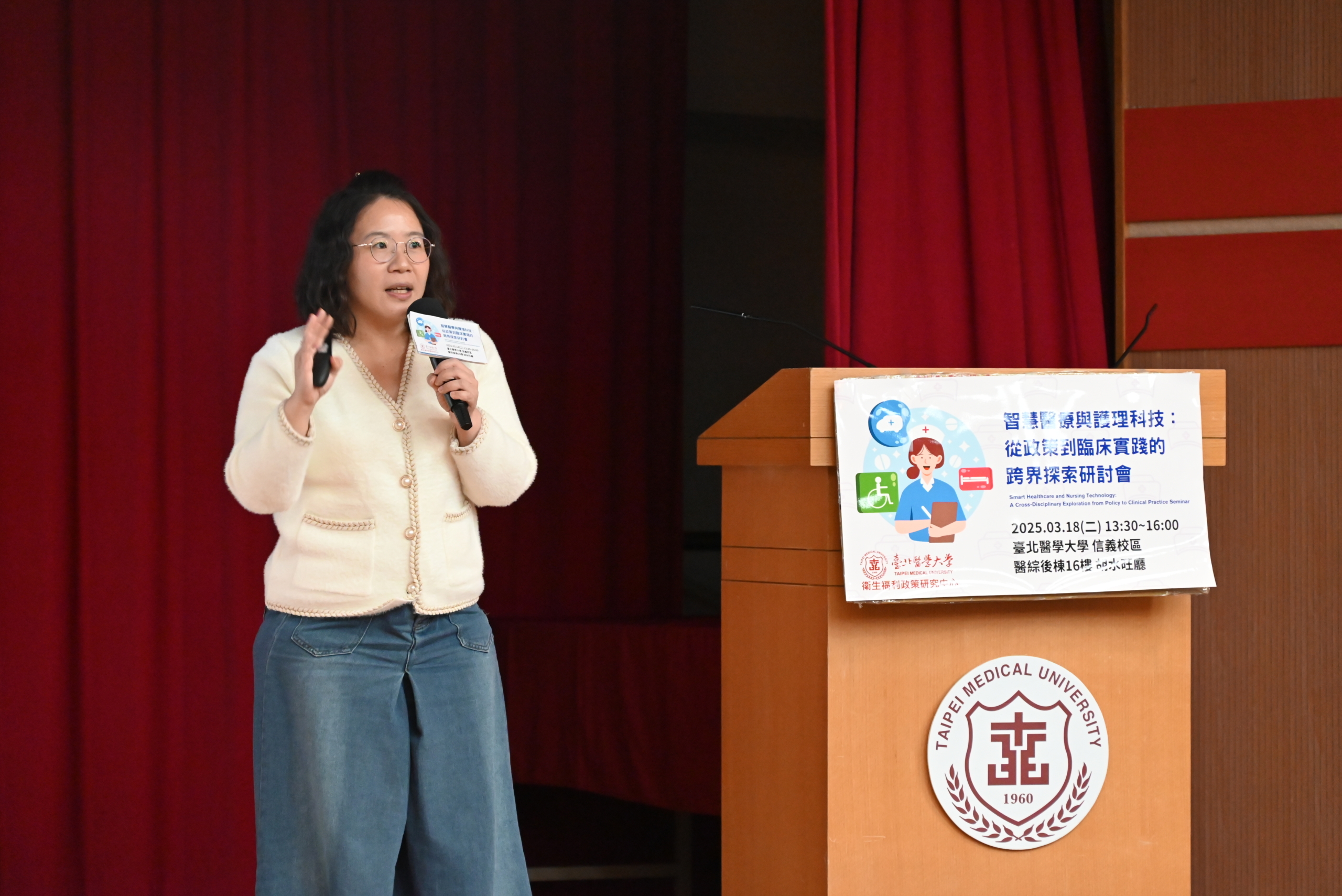
Director Ho Wen-Ting highlighted that smart healthcare technologies effectively address resource shortages, rising costs, and chronic disease management while providing patients with higher-quality healthcare experiences. She shared Shuang Ho Hospital’s experiences with:
- Smart ward systems and automated monitoring devices, which enable real-time patient data tracking, early issue detection, and reduced human errors.
- Smart medication cabinets, which automate drug distribution, lower error rates, and enhance medication safety.
She emphasized that implementing smart healthcare technologies streamlines nursing workflows, alleviates workload pressures, increases efficiency, and reduces errors. However, she also pointed out key challenges, including data security, standardization, personnel training, and ethical considerations. She called for robust cybersecurity measures, unified technology standards, enhanced workforce training, and ethical oversight to ensure smart healthcare’s safe and effective integration into clinical practice.
Policy Recommendations
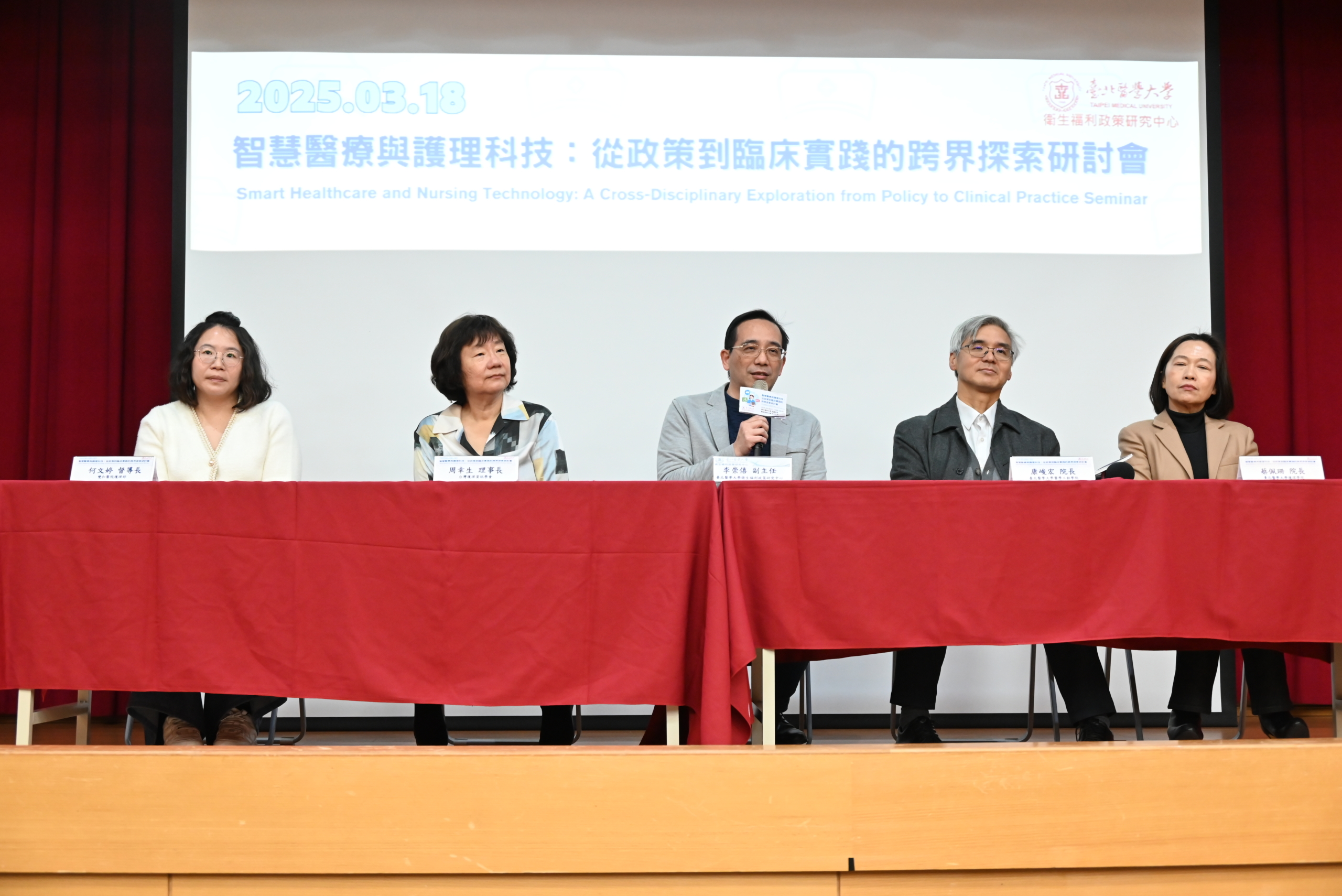
-
Increase investment in smart technology for nursing care and education to enhance healthcare institutions’ technological capabilities, address workforce shortages, encourage nurse retention, and improve medical safety and efficiency.
-
Promote smart nursing solutions, including automated scheduling systems, smart wards, and intelligent medication cabinets, to streamline nursing workflows, increase efficiency, and reduce errors while easing the workload of nursing professionals.
-
Standardize nursing records and develop a unified care management system across healthcare institutions to enhance data sharing and collaboration, optimize resource allocation, and improve patient care quality.
-
Encourage government funding for the standardization of smart medical devices and the establishment of standardized data collection indicators to accurately measure healthcare outcomes, inform policy decisions, and drive medical innovation.
-
Ensure interdisciplinary collaboration and continuous evaluation in smart healthcare development, incorporating sustainability considerations to maintain compliance, uphold ethical standards, and support long-term healthcare advancements.
Related News Reports
2025.03.20Artificial Intelligence Joins Forces with Rehabilitation: Helping Stroke Patients Regain Physical Autonomy.
